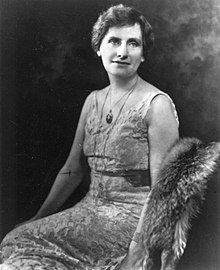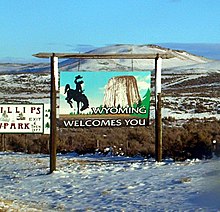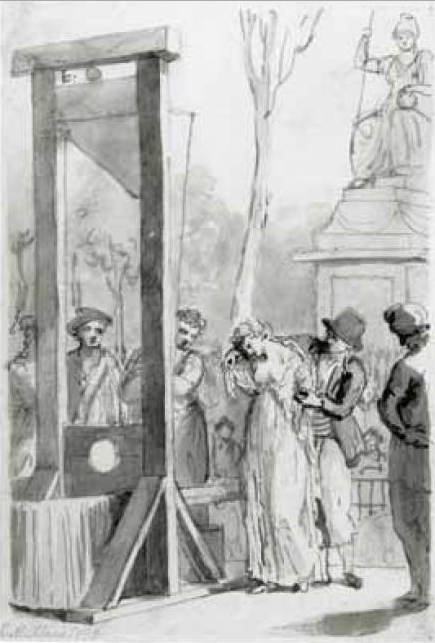November 7 is the 311th day of the year. There are 54 days remaining until the end of the year.
| Mary Robinson 7th President of Ireland |
Today's Highlight in History.
1990 – Mary Robinson becomes the first woman to be elected President of the Republic of Ireland.
Born Mary Therese Winifred Bourke in Ballina, County Google, in 1944, she is the daughter of two medical doctors. Her father was Dr. Aubrey Bourke of Ballina, County Mayo, while her mother was Dr. Tessa Bourke (née O'Donnell) of Carndonagh, Inishowen.
Mary Bourke attended Mount Anville Secondary School in Dublin and studied law at Trinity College, Dublin, King's Inns and Harvard Law School. In her twenties, she was called to the Inner Bar as Senior Counsel and was appointed Reid Professor of Law in the college, considered to be a prestigious appointment made to accomplished lawyers.A subsequent holder of the title was her successor as Irish president, Mary McAleese. In 1965 she was elected as a Scholar of Trinity College Dublin.
In 1970, Bourke married Nicholas Robinson, with whom she had had a relationship since they were fellow law students and who was then practising as a solicitor. Despite the fact that her family had close links to the Church of Ireland, her marriage to a Protestant caused a rift with her parents, who did not attend her wedding. The rift was eventually overcome in subsequent months. Together they have three children.
Robinson was inaugurated as the seventh President of Ireland on 3 December 1990. She proved a remarkably popular president, earning the praise of Brian Lenihan himself who, before his death five years later, said she was a better president than he ever could have been. She took an office that had a reputation as being little more than a retirement position for prominent politicians and breathed new life into the role. Robinson brought to the presidency legal knowledge, deep intellect, and political experience. She reached out to the Irish diaspora (the large number of Irish emigrants and people of Irish descent). She also changed the face of Anglo-Irish relations, when she was the first serving Irish president to visit the United Kingdom and meet Queen Elizabeth II at Buckingham Palace. She welcomed visits by senior members of the British royal family, most notably the Prince of Wales, to her official residence, Áras an Uachtaráin.
She served as the seventh, and first female, President of Ireland from 1990 to 1997, and the United Nations High Commissioner for Human Rights, from 1997 to 2002. She first rose to prominence as an academic, barrister, campaigner and member of the Irish Senate (1969–1989). She defeated Fianna Fáil's Brian Lenihan and Fine Gael's Austin Currie in the 1990 presidential election becoming, as an Independent candidate nominated by the Labour Party, the Workers' Party and independent senators, the first elected president in the office's history not to have had the support of Fianna Fáil.
She served as the seventh, and first female, President of Ireland from 1990 to 1997, and the United Nations High Commissioner for Human Rights, from 1997 to 2002. She first rose to prominence as an academic, barrister, campaigner and member of the Irish Senate (1969–1989). She defeated Fianna Fáil's Brian Lenihan and Fine Gael's Austin Currie in the 1990 presidential election becoming, as an Independent candidate nominated by the Labour Party, the Workers' Party and independent senators, the first elected president in the office's history not to have had the support of Fianna Fáil.
| Robinson in Somalia, 2011. |
After leaving the UN in 2002, Robinson formed Realizing Rights: the Ethical Globalization Initiative which came to a planned end at the end of 2010. Its core activities were 1) fostering equitable trade and decent work, 2) promoting the right to health and morehumane migration policies, and 3) working to strengthen women's leadership and encourage corporate responsibility. The organisation also supported capacity building and good governance in developing countries. Robinson returned to live in Ireland at the end of 2010, and has set up The Mary Robinson Foundation -
Climate Justice, which aims to be 'a centre for thought leadership, education and advocacy on the struggle to secure global justice for those many victims of climate change who are usually forgotten - the poor, the disempowered and the marginalised across the world.'
Robinson is Chair of the Institute for Human Rights and Business and Chancellor of the University of Dublin. Since 2004, she has also been Professor of Practice in International Affairs at Columbia University, where she teaches international human rights. Robinson also visits other colleges and universities where she lectures on human rights. Robinson sits on the Board of the Mo Ibrahim Foundation, an organisation which supports good governance and great leadership in Africa, and is a member of the Foundation’s Ibrahim Prize Committee. Robinson is an Extraordinary Professor in the Centre for Human Rights and the Centre for the Study of AIDS at the University of Pretoria. Robinson served as Oxfam's honorary president from 2002 until she stepped down in 2012 and is honorary president of the European Inter-University Centre for Human Rights and Democratisation EIUC since 2005. She is Chair of the International Institute for Environment and Development (IIED) and is also a founding member and Chair of the Council of Women World Leaders. Robinson was a member of the European members of the Trilateral Commission.
In 2004, she received Amnesty International's Ambassador of Conscience Award for her work in promoting human rights
.In July 2009, she was awarded the Presidential Medal of Freedom, the highest civilian honour awarded by the United States.In presenting the award to Robinson, U.S. President Barack Obama said
"Mary Robinson learned early on what it takes to make sure all voices are heard. As a crusader for women and those without a voice in Ireland, Mary Robinson was the first woman elected President of Ireland, before being appointed U.N. High Commissioner for Human Rights. When she traveled abroad as President, she would place a light in her window that would draw people of Irish descent to pass by below. Today, as an advocate for the hungry and the hunted, the forgotten and the ignored, Mary Robinson has not only shone a light on human suffering, but illuminated a better future for our world."
Climate Justice, which aims to be 'a centre for thought leadership, education and advocacy on the struggle to secure global justice for those many victims of climate change who are usually forgotten - the poor, the disempowered and the marginalised across the world.'
Robinson is Chair of the Institute for Human Rights and Business and Chancellor of the University of Dublin. Since 2004, she has also been Professor of Practice in International Affairs at Columbia University, where she teaches international human rights. Robinson also visits other colleges and universities where she lectures on human rights. Robinson sits on the Board of the Mo Ibrahim Foundation, an organisation which supports good governance and great leadership in Africa, and is a member of the Foundation’s Ibrahim Prize Committee. Robinson is an Extraordinary Professor in the Centre for Human Rights and the Centre for the Study of AIDS at the University of Pretoria. Robinson served as Oxfam's honorary president from 2002 until she stepped down in 2012 and is honorary president of the European Inter-University Centre for Human Rights and Democratisation EIUC since 2005. She is Chair of the International Institute for Environment and Development (IIED) and is also a founding member and Chair of the Council of Women World Leaders. Robinson was a member of the European members of the Trilateral Commission.
In 2004, she received Amnesty International's Ambassador of Conscience Award for her work in promoting human rights
.In July 2009, she was awarded the Presidential Medal of Freedom, the highest civilian honour awarded by the United States.In presenting the award to Robinson, U.S. President Barack Obama said
"Mary Robinson learned early on what it takes to make sure all voices are heard. As a crusader for women and those without a voice in Ireland, Mary Robinson was the first woman elected President of Ireland, before being appointed U.N. High Commissioner for Human Rights. When she traveled abroad as President, she would place a light in her window that would draw people of Irish descent to pass by below. Today, as an advocate for the hungry and the hunted, the forgotten and the ignored, Mary Robinson has not only shone a light on human suffering, but illuminated a better future for our world."
| Robinson receiving the Presidential Medal of Freedom from Barack Obama. |
United States Speaker of the House Nancy Pelosi, United States Senate Assistant Majoriy Leader Dick Durbin, and some other legislators welcomed the presenting of the award to Robinson." Forty-five Republican Congressmen sent a letter to President Obama raised issue with the presentation citing "her failed, biased record as United Nations High Commissioner for Human Rights".
In a letter to President Obama, Nancy Rubin, a former American ambassador to the UN Human Rights Commission, welcomed the award and praised Robinson as a "dedicated crusader for human rights for all people". Oxfam confederation also expressed its strong support for Robinson. The Council of Women World Leaders, the Champalimaud Foundation, and the Imagine Nations Group welcomed the presentation of the Medal of Freedom to Robinson.
The International Gay and Lesbian Human Rights Commission congratulated Robinson, saying she "helped advance recognition of the human rights of LGBT people in her capacity as President of Ireland and as United Nations High Commissioner for Human Rights. She has been unwavering in her passionate call to end torture, persecution, and discrimination against LGBT people globally."
Wikipedia
1914 – The first issue of The New Republic magazine is published.
1920 – Patriarch Tikhon issues a decree that leads to the formation of the Russian Orthodox Church Outside Russia.
1929 – In New York City, the Museum of Modern Art opens to the public.
1931 – The Chinese Soviet Republic is proclaimed on the anniversary of the October Revolution.
1933 – Fiorello H. La Guardia is elected the 99th mayor of New York City.
1940 – In Tacoma, Washington, the original Tacoma Narrows Bridge collapses in a windstorm, a mere four months after the bridge's completion.
1941 – World War II: Soviet hospital ship Armenia is sunk by German planes while evacuating refugees and wounded military and staff of several Crimean hospitals. It is estimated that over 5,000 people died in the sinking.
1944 – A passenger train derails in Aguadilla, Puerto Rico from excessive speed when descending a hill. Sixteen people are killed and 50 are injured.
1944 – Soviet spy Richard Sorge, a half-Russian, half-German World War I veteran, is hanged by his Japanese captors along with 34 of his ring.
1944 – Franklin D. Roosevelt elected for a record fourth term as President of the United States of America.
1949 – The first oil was taken in Oil Rocks (Neft Daşları), oldest offshore oil platform.
1956 – Suez Crisis: The United Nations General Assembly adopts a resolution calling for the United Kingdom, France and Israel to immediately withdraw their troops from Egypt.
1963 – Wunder von Lengede: In Germany, eleven miners are rescued from a collapsed mine after 14 days.
1967 – Carl B. Stokes is elected as Mayor of Cleveland, Ohio, becoming the first African American mayor of a major American city.
1967 – US President Lyndon B. Johnson signs the Public Broadcasting Act of 1967, establishing the Corporation for Public Broadcasting.
1973 – The U.S. Congress overrides President Richard M. Nixon's veto of the War Powers Resolution, which limits presidential power to wage war without congressional approval.
1983 – 1983 United States Senate bombing: a bomb explodes inside the United States Capitol. No one is injured, but an estimated $250,000 in damage is caused.
1987 – In Tunisia, president Habib Bourguiba is overthrown and replaced by Prime Minister Zine El Abidine Ben Ali.
1987 – Singapore's first Mass Rapid Transit line was opened, starting with train services between Yio Chu Kang and Toa Payoh stations.
1989 – Douglas Wilder wins the governor's seat in Virginia, becoming the first elected African American governor in the United States.
1989 – David Dinkins becomes the first African American to be elected mayor of New York City.
1989 – East German Prime Minister Willi Stoph, along with his entire cabinet, is forced to resign after huge anti-government protests.
1990 – Mary Robinson becomes the first woman to be elected President of the Republic of Ireland.
1991 – Magic Johnson announces that he is infected with HIV and retires from the NBA.
1994 – WXYC, the student radio station of the University of North Carolina at Chapel Hill, provides the world's first internet radio broadcast.
2000 – Hillary Rodham Clinton is elected to the United States Senate, becoming the first former First Lady to win public office in the United States, although she was actually still the First Lady.
2000 – Controversial US presidential election that is later resolved in the Bush v. Gore Supreme Court Case.
2000 – The U.S. Drug Enforcement Administration discovers one of the country's largest LSD labs inside a converted military missile silo in Wamego, Kansas.
2002 – Iran bans advertising of United States products.
2004 – Iraq War: The interim government of Iraq calls for a 60-day "state of emergency" as U.S. forces storm the insurgent stronghold of Fallujah.
2007 – Jokela school shooting in Tuusula, Finland, resulting in the death of nine people.
2012 – An earthquake off the Pacific coast of Guatemala kills at least 52 people.
World Events
1914 – The first issue of The New Republic magazine is published.
1920 – Patriarch Tikhon issues a decree that leads to the formation of the Russian Orthodox Church Outside Russia.
1929 – In New York City, the Museum of Modern Art opens to the public.
1931 – The Chinese Soviet Republic is proclaimed on the anniversary of the October Revolution.
1933 – Fiorello H. La Guardia is elected the 99th mayor of New York City.
1940 – In Tacoma, Washington, the original Tacoma Narrows Bridge collapses in a windstorm, a mere four months after the bridge's completion.
1941 – World War II: Soviet hospital ship Armenia is sunk by German planes while evacuating refugees and wounded military and staff of several Crimean hospitals. It is estimated that over 5,000 people died in the sinking.
1944 – A passenger train derails in Aguadilla, Puerto Rico from excessive speed when descending a hill. Sixteen people are killed and 50 are injured.
1944 – Soviet spy Richard Sorge, a half-Russian, half-German World War I veteran, is hanged by his Japanese captors along with 34 of his ring.
1944 – Franklin D. Roosevelt elected for a record fourth term as President of the United States of America.
1949 – The first oil was taken in Oil Rocks (Neft Daşları), oldest offshore oil platform.
1956 – Suez Crisis: The United Nations General Assembly adopts a resolution calling for the United Kingdom, France and Israel to immediately withdraw their troops from Egypt.
1963 – Wunder von Lengede: In Germany, eleven miners are rescued from a collapsed mine after 14 days.
1967 – Carl B. Stokes is elected as Mayor of Cleveland, Ohio, becoming the first African American mayor of a major American city.
1967 – US President Lyndon B. Johnson signs the Public Broadcasting Act of 1967, establishing the Corporation for Public Broadcasting.
1973 – The U.S. Congress overrides President Richard M. Nixon's veto of the War Powers Resolution, which limits presidential power to wage war without congressional approval.
1983 – 1983 United States Senate bombing: a bomb explodes inside the United States Capitol. No one is injured, but an estimated $250,000 in damage is caused.
1987 – In Tunisia, president Habib Bourguiba is overthrown and replaced by Prime Minister Zine El Abidine Ben Ali.
1987 – Singapore's first Mass Rapid Transit line was opened, starting with train services between Yio Chu Kang and Toa Payoh stations.
1989 – Douglas Wilder wins the governor's seat in Virginia, becoming the first elected African American governor in the United States.
1989 – David Dinkins becomes the first African American to be elected mayor of New York City.
1989 – East German Prime Minister Willi Stoph, along with his entire cabinet, is forced to resign after huge anti-government protests.
1990 – Mary Robinson becomes the first woman to be elected President of the Republic of Ireland.
1991 – Magic Johnson announces that he is infected with HIV and retires from the NBA.
1994 – WXYC, the student radio station of the University of North Carolina at Chapel Hill, provides the world's first internet radio broadcast.
2000 – Hillary Rodham Clinton is elected to the United States Senate, becoming the first former First Lady to win public office in the United States, although she was actually still the First Lady.
2000 – Controversial US presidential election that is later resolved in the Bush v. Gore Supreme Court Case.
2000 – The U.S. Drug Enforcement Administration discovers one of the country's largest LSD labs inside a converted military missile silo in Wamego, Kansas.
2002 – Iran bans advertising of United States products.
2004 – Iraq War: The interim government of Iraq calls for a 60-day "state of emergency" as U.S. forces storm the insurgent stronghold of Fallujah.
2007 – Jokela school shooting in Tuusula, Finland, resulting in the death of nine people.
2012 – An earthquake off the Pacific coast of Guatemala kills at least 52 people.








